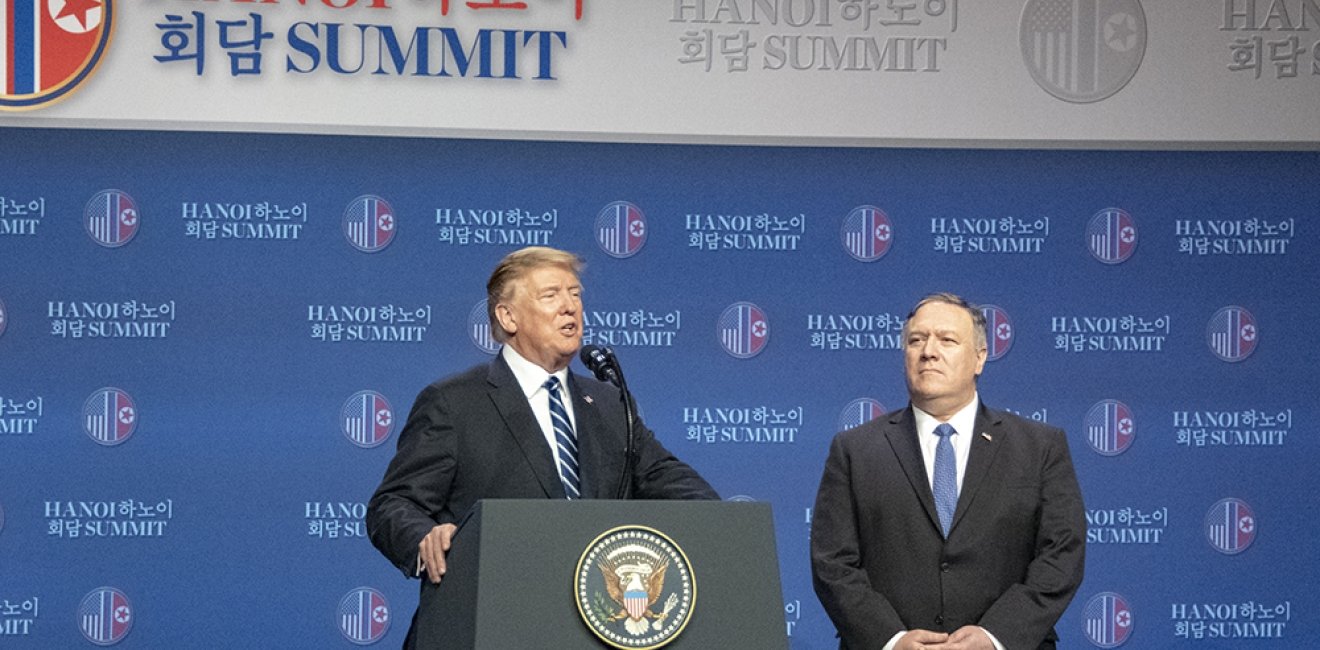
A blog of the Indo-Pacific Program
Experts and pundits in the United States and South Korea have been very busy analyzing the mystery of “Why No Deal in Hanoi.” Just as politics in America and South Korea are different, conclusions for why the summit broke down inside the two allies seem to be dissimilar as well.
The consensus in Washington and across the country appears to be that it was simply a bad deal that you had to refuse. What Kim suggested giving up was not up to the expectation Trump held. We don’t know whether Pyongyang’s offer was the full dismantlement of Nyongbyon or just partial denuclearization, and we won’t know until Trump’s autobiography comes out after 2020 or 2024. Indeed, what constitutes a bad deal is not a big deal. A bad deal is a bad deal. Thus, some Democrats and the liberal media are even now doing a rare thing in this polarized state of American politics: giving Trump a pat on the back!
The analysts and the media in South Korea pay too much attention to the political situation facing Trump in American domestic politics.
What about South Korea? It would be fortunate if South Korea as a U.S. ally shared the view of her military partner. But this seems not to be the case. The analysts and the media in South Korea pay too much attention to the political situation facing Trump in American domestic politics. The Cohen testimony has become a headline story in South Korea and a kitchen table topic for South Koreans when they scratch their head on why Trump walked away. The logic is that domestic hard times, namely a stab in the back, made Trump (i.e. Bolton) unfairly ask Chairman Kim to give up much more than agreed upon. So, there was no deal.
Don’t get me wrong. I do not believe that it is possible, or even productive, for Seoul and Washington to speak in the same voice all the time. My concern is that the conclusion on “why” the Hanoi Summit broke down will greatly affect the strategy of “how” to approach future negotiations with North Korea. Without balanced and shared analyses on Hanoi, South Korea and the United States could potentially see a disjointed path toward the pursuit of complete denuclearization of North Korea.
I often tell my students to do question-oriented research, rather than method-driven research. In other words, you should not limit yourself to looking at an issue with the single method you have, but examine the question from all sides to get the complete picture. Even in the classroom, no answer is better than a misleading conclusion.
Jungkun Seo is a Fulbright Fellow at the Wilson Center and an associate professor of political science at Kyung Hee University in Seoul, South Korea.
The views expressed are the author's alone, and do not represent the views of the U.S. Government or the Wilson Center. Copyright 2018, Asia Program. All rights reserved.
Author

Associate Professor of Political Science, Kyung Hee University, Seoul, Korea

Indo-Pacific Program
The Indo-Pacific Program promotes policy debate and intellectual discussions on US interests in the Asia-Pacific as well as political, economic, security, and social issues relating to the world’s most populous and economically dynamic region. Read more


Hyundai Motor-Korea Foundation Center for Korean History and Public Policy
The Center for Korean History and Public Policy was established in 2015 with the generous support of the Hyundai Motor Company and the Korea Foundation to provide a coherent, long-term platform for improving historical understanding of Korea and informing the public policy debate on the Korean peninsula in the United States and beyond. Read more





